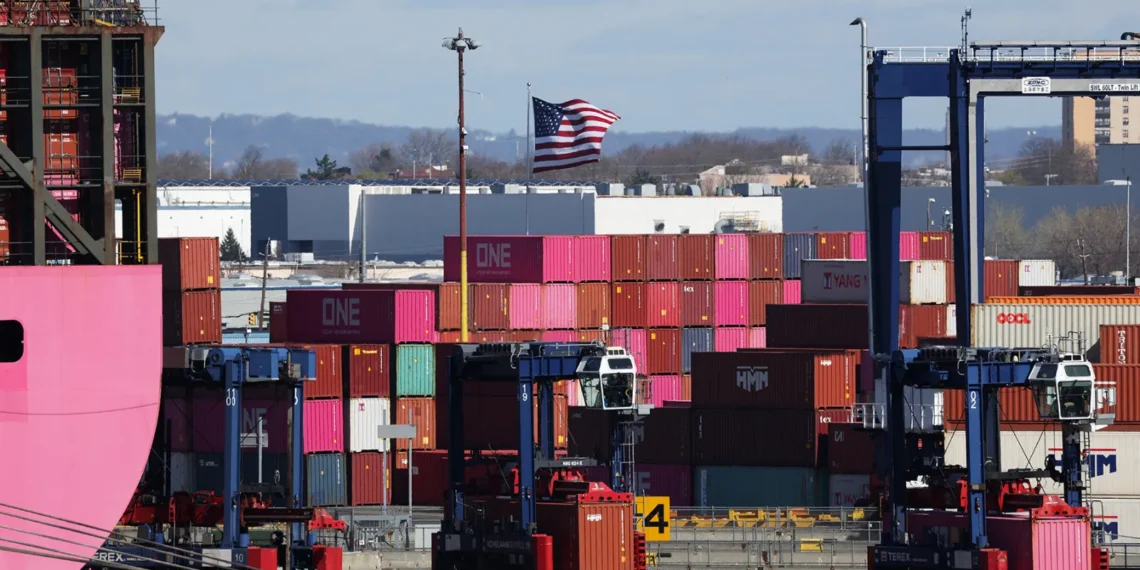BY PC Bureau
India is unlikely to follow China’s suggestion to unite against the global tariff war initiated by U.S. President Donald Trump, despite both nations being among the most populous and influential in the world.
On Tuesday, Yu Jing, the spokesperson for the Chinese Embassy in India, urged India and China to collaborate in overcoming the challenges posed by tariffs imposed by the Trump administration. In a post on X, Yu stated, “The China-India economic and trade relationship is rooted in complementarity and mutual benefit. Facing the U.S.’s misuse of tariffs, the two largest developing countries should stand together to address these difficulties.”
ALSO READ: Musk vs. Navarro: Tesla Titan Torches Trump’s Trade Advisor in Explosive Showdown
Yu highlighted China’s economic strengths, saying, “China’s economy is supported by a system that ensures consistent growth and generates positive global spillovers. Chinese manufacturing relies on a comprehensive and constantly evolving industrial framework, sustained investment in research and development, and a strong emphasis on innovation.”
She also underscored China’s dedication to multilateralism and global economic cooperation, adding, “China staunchly defends economic globalization and multilateralism, contributing approximately 30 percent to annual global growth on average. We will continue collaborating with the world to uphold the multilateral trading system, with the World Trade Organization (WTO) at its heart.”
China’s economy is underpinned by a system that ensures steady growth, and produces positive spillovers. Chinese manufacturing is built on a complete and continually upgrading industrial system, sustained investment in R&D, and a strong focus on innovation.
China is a firm… pic.twitter.com/w3QuSCingL
— Yu Jing (@ChinaSpox_India) April 8, 2025
Addressing the impact of U.S. tariffs, Yu noted, “These tariffs strip countries, particularly those in the Global South, of their right to development. The two largest developing nations must unite to tackle these challenges.” She further argued, “Trade and tariff wars benefit no one. All countries should embrace extensive consultation, practice genuine multilateralism, and collectively resist all forms of unilateralism and protectionism.”
However, it is improbable that Chinese President Xi Jinping will secure active support from India, which has yet to respond decisively to Trump’s aggressive tariff policies. Indian policymakers and media have even highlighted potential advantages of the tariff hikes, seemingly downplaying the Modi government’s lack of action against Trump’s measures.
Additional Reasons for India’s Apparent Capitulation to Trump
Beyond its muted response, several factors suggest India is unlikely to challenge Trump head-on. First, India relies heavily on the U.S. as a key trading partner and a counterbalance to China’s regional dominance, making confrontation with Washington diplomatically risky.
From Dialogue to Discord: Meitie Groups Differ Over MHA Peace Initiative
Second, India may see opportunities in the U.S.-China trade war, such as attracting American companies seeking alternatives to Chinese manufacturing. Third, domestic priorities, including economic recovery and infrastructure development, may outweigh the political will to engage in a tariff standoff with the U.S.
While opposition leaders speculate that a pending U.S. corruption case involving an Indian corporation affects India’s approach to Trump, no evidence has been presented to substantiate this claim.
ALSO READ: From Dialogue to Discord: Meitie Groups Differ Over MHA Peace Initiative
Escalation of the U.S.-China Trade War
The trade conflict intensified as President Trump previously imposed a 10 percent import duty on all nations, with steeper tariffs on specific countries, including 27 percent on Indian exports. Tensions soared further when Trump announced a sweeping 104 percent tariff on all Chinese imports, effective from midnight on Tuesday, April 8, 2025, according to the White House. This followed a 24-hour ultimatum to China to rescind its retaliatory 34 percent tariff on U.S. goods, which Beijing ignored, prompting Washington to enforce the new duties.
China, in turn, pledged to “fight to the end,” vowing countermeasures to protect its economic interests. The Chinese Commerce Ministry condemned the U.S. tariffs as “completely baseless” and a “clear example of unilateral bullying.” As the world’s second-largest economy, China has already introduced retaliatory tariffs, with the ministry hinting at further actions. “China’s countermeasures are designed to protect its sovereignty, security, and development interests while preserving the international trade order. They are entirely justified,” the ministry stated.














